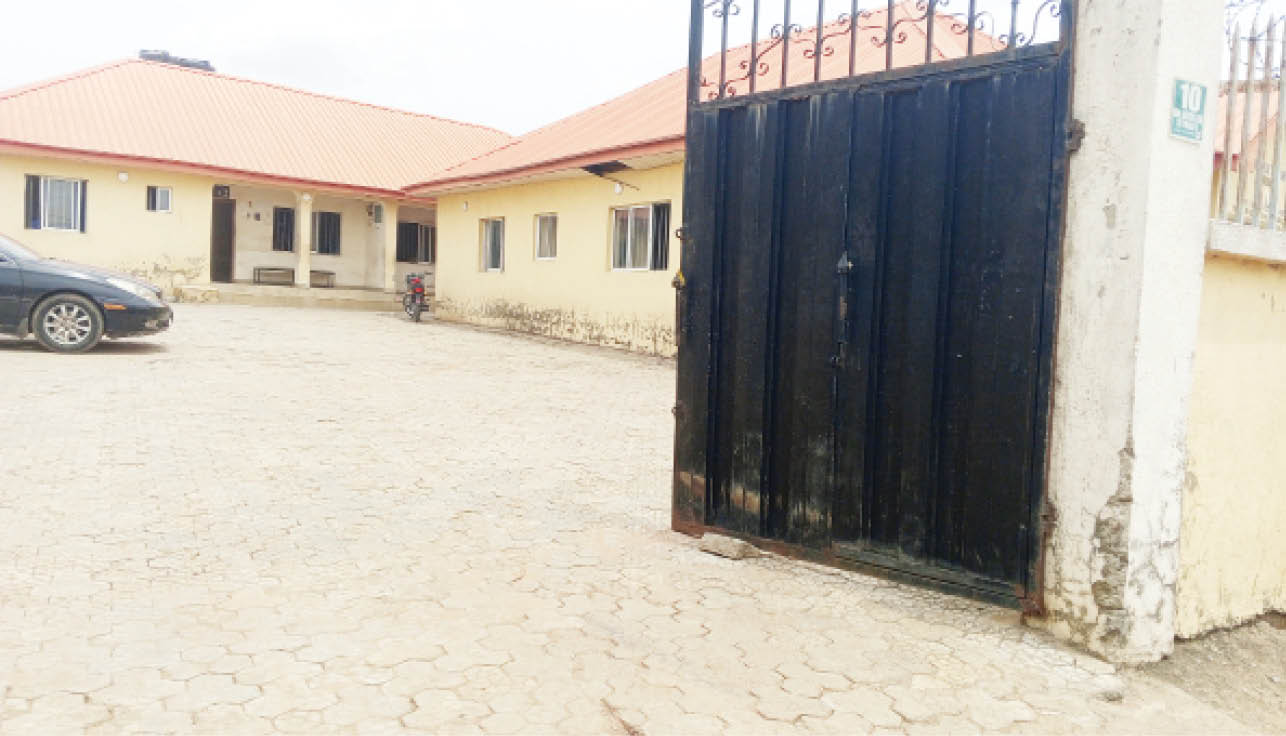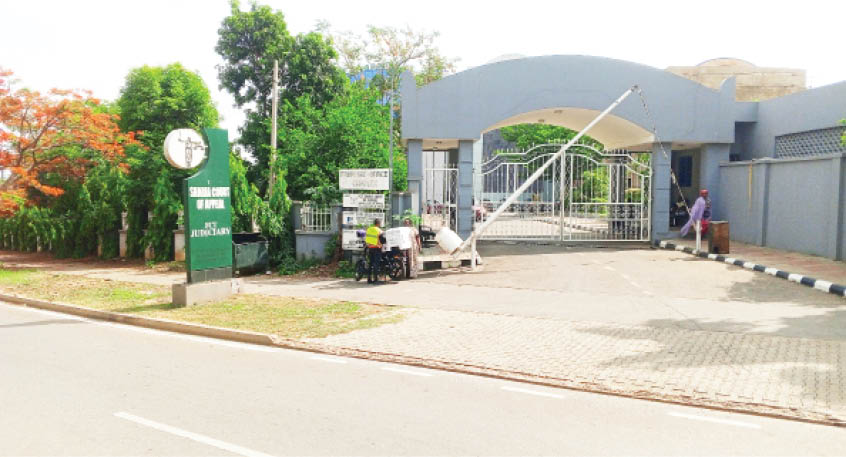Knocks, kudos as FCT stops Area Courts from hearing criminal cases
There have been mixed reactions from litigants, lawyers and other stakeholders as authorities of the Federal Capital Territory suspend the hearing of all criminal cases by area courts in the territory Daily Trust correspondent reports that the directive, dated April 23, was issued by the Area Court Department, under the FCT Sharia Court of Appeal, […]

an area court in shagari quarters at dei dei area in the fct, without the usual group of people
There have been mixed reactions from litigants, lawyers and other stakeholders as authorities of the Federal Capital Territory suspend the hearing of all criminal cases by area courts in the territory
Daily Trust correspondent reports that the directive, dated April 23, was issued by the Area Court Department, under the FCT Sharia Court of Appeal, which supervises the lower courts.
According to the circular, the action followed “Series of unfortunate events’’ that recently happened in some of the courts.”
It said the Hon. Grand Khadi of the FCT, had directed for the suspension of entertaining criminal matters by the area courts, “which includes receiving and registering of the direct criminal complaints.’’
- Police parade 13 over kidnapping, robbery in Benue
- Fubara appoints 8 commissioners, charges them on loyalty
Other directives prohibited by the circular, include receiving and registering of the First Information Report (FIR) from the police to prosecute criminal cases in the courts.
“All criminal proceedings should be terminated forthwith at whatever stages” the circular, which was signed by Ado Mukhtar Ahmad, the Director, FCT Area Courts, on behalf of the Chief Registrar, Shari’a Court of Appeal.

It was learnt that this is the second time that area courts in the territory have come under such a directive over the same issue, having faced a similar one in 2008, before the matter was later resolved.
Following the directive, the courts are now restricted to handling only civil cases that are of Sharia in nature, involving issues related to marriage, inheritance and other minor domestic or community disputes.
With the new development, both the police, who usually rush to such courts with cases and individuals who approach the courts with criminal cases without engaging lawyers, would now have to use the magistrates’ courts.
Daily Trust reports that, following the directive, the area courts, which usually handled more cases among all the lower courts, are now looking empty.
Some stakeholders told Daily Trust that the suspension will also see delays in the dispensation of justice in the territory. They said most cases filed at area courts took a shorter time to dispose of.
Speaking about the development, a lawyer and principal partner with the Lawlead Consult chamber, Barrister Abubakar Yahaya Ndakene, said he would challenge the matter, insisting that the courts have jurisdiction to entertain criminal matters.
He said he had personally challenged such a directive before the FCT High Court in the past where, according to him, the court had ruled in his favour.
Ndakene also criticised the rushed suspension of cases pending before the courts, adding that they should have been allowed to be concluded.
“Even when a new law is being introduced, there used to be a provision that exempted all pending cases already before the courts so that nobody would suffer on account of changing a law,” Ndakene argued.
A senior official in the FCT Area Courts Department, who preferred to remain anonymous, said the courts offer unique services to the public.
He said there are 51 area courts in the six area councils of the territory, adding that in 2023, they disposed of 4,637 criminal cases.
He pointed out that area courts operating in the northern states of the country as well as their counterparts in the FCT, handle both civil and criminal cases in addition to those related to Sharia law, which gave them an edge over other lower courts.
He said a similar circular was issued 2008, but the suspension was lifted after some issues were resolved. He added that the current issues would also be resolved.
“Every system goes through an overhaul, and that was what necessitated the court to also present an act before the National Assembly for better upgrading of the courts.
“As you are aware, the National Assembly doubles as the legislature that oversees the governing affairs of the FCT, and the matter has been presented before them, where it has passed a stage, and is currently awaiting to reach the next one,” the source added.
He described the area court as an avenue where citizens can go to seek justice, without necessarily going through paying for a lawyer and other procedures that obtained in magistrates’ courts.
“That is why it used to be referred to as the court of summary jurisdiction. A lot of people, lawyers, and police are all not comfortable with the development.’’
He said the area courts in the FCT are entirely different from the Sharia court, even when it’s under the Upper Sharia Court, but that some lawyers, out of mischief and sentiment, are trying to attack the court, by describing it as a Sharia court, in a bid to achieve their selfish interest.
Another source said what the courts need is effective supervision of their operations. He added that that was the reason the courts were placed under Sharia Court of Appeal, just as it was with the customary court being under the Customary Court of Appeal, and the magistrate court operating under the supervision of the High Court.
“Litigants wishing to appeal against the judgment of area courts are allowed to go to a high court, or, where cases have to do with Shari’a, they can appeal to a Shari’a Court of Appeal.
On the court’s jurisdiction in handling criminal cases, a judge of a magistrates’ court, who wants to be anonymous, said there is not a specific law that empowers the area courts in the territory to entertain criminal cases in the act that established them.
He said two high courts of justice had issued conflicting judgments on the matter, with both being currently on appeal before the Court of Appeal.
“The bill currently before the National Assembly seeking for an amendment over the establishment of the court is another pointer that explains it all; that they presently lack the jurisdiction to handle criminal matters,” the judge said.
He accused the judges of the court of abusing the procedures in handling cases before them, adding that they sometimes conducted court sittings at odd hours.
He also said the magistrate courts in the FCT, with about 70 branches across the territory, are capable of filling the vacuum and handling all the criminal cases diligently, as has been enshrined by the law.
Efforts to speak with the Chief Registrar of the FCT Sharia Court of Appeal, where the said circular had originated from, were not successful. During a visit by our reporter to his office, his personal assistant said he was attending a crucial meeting at the time.
However, the Director of the FCT Area Courts, Ado M. Ahmad, who signed the circular, had confirmed to Daily Trust that the directive was from them, adding that the matter would be resolved amicably, in due course.
